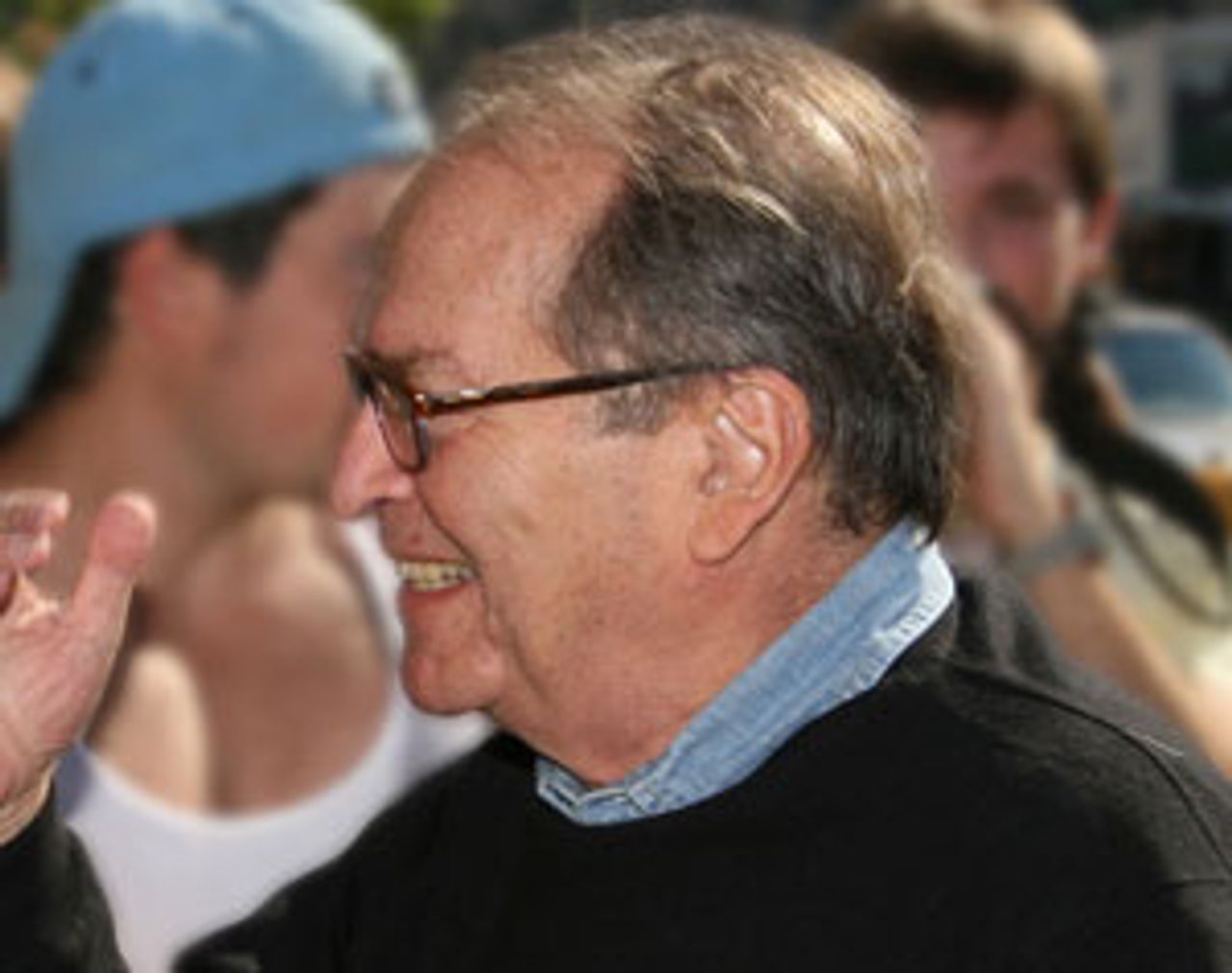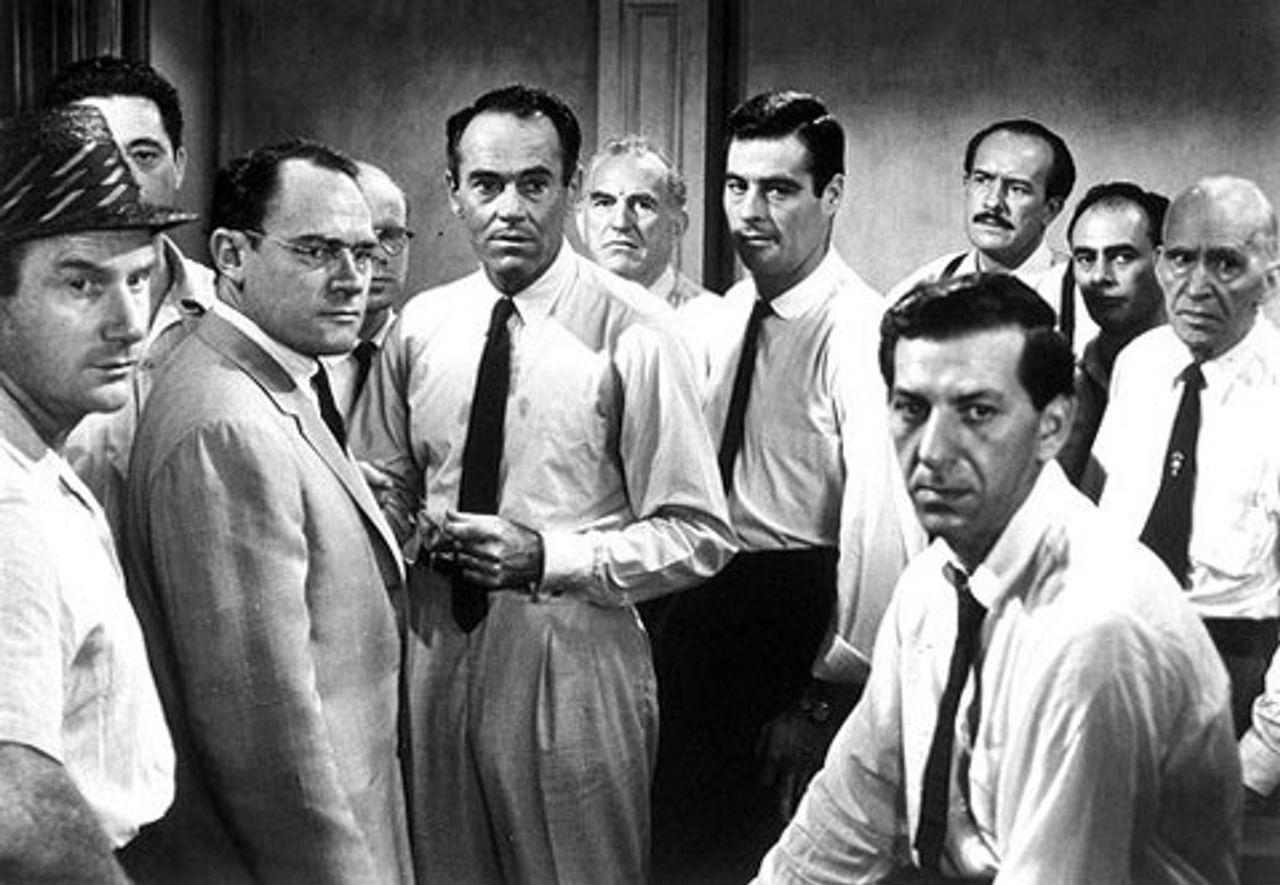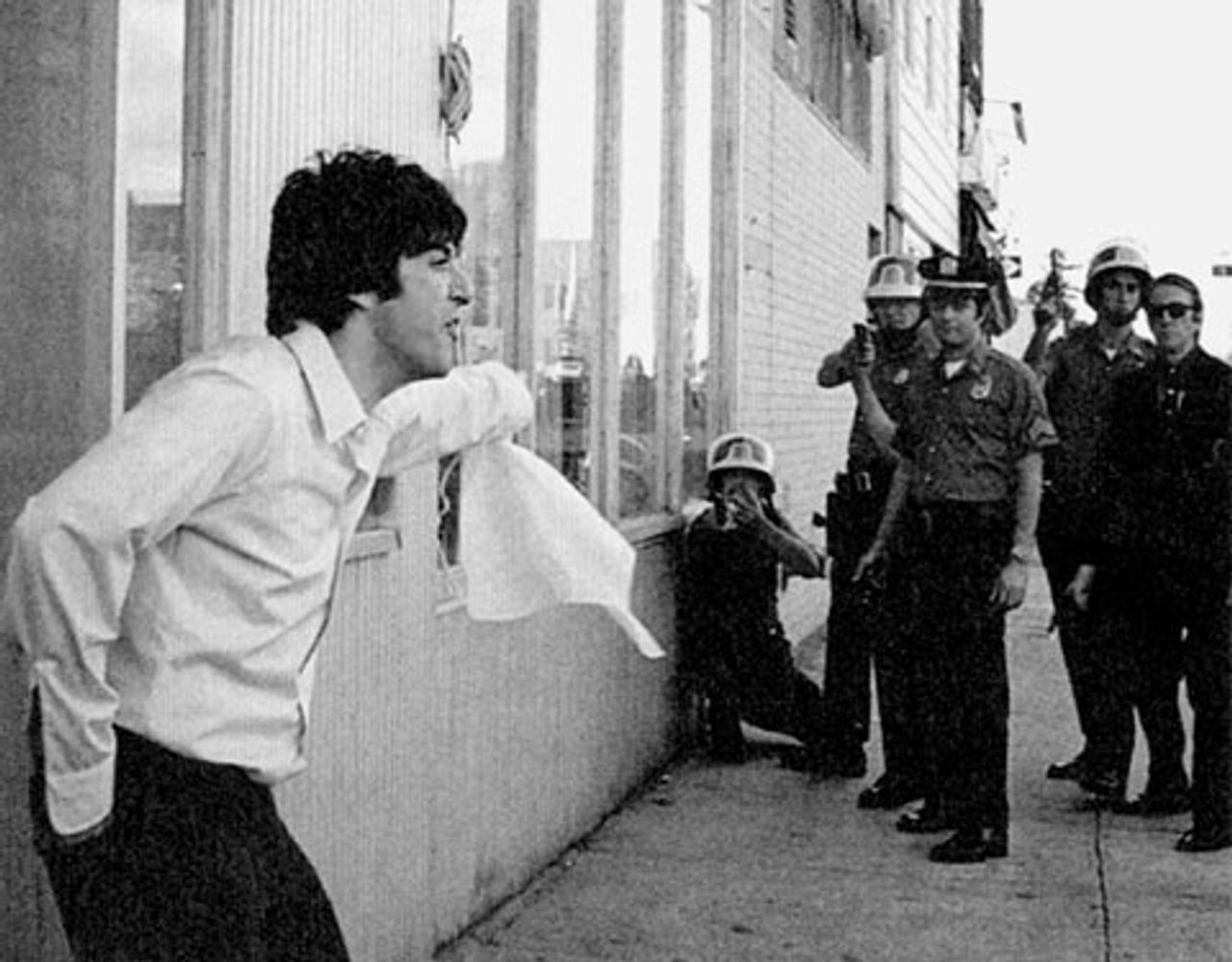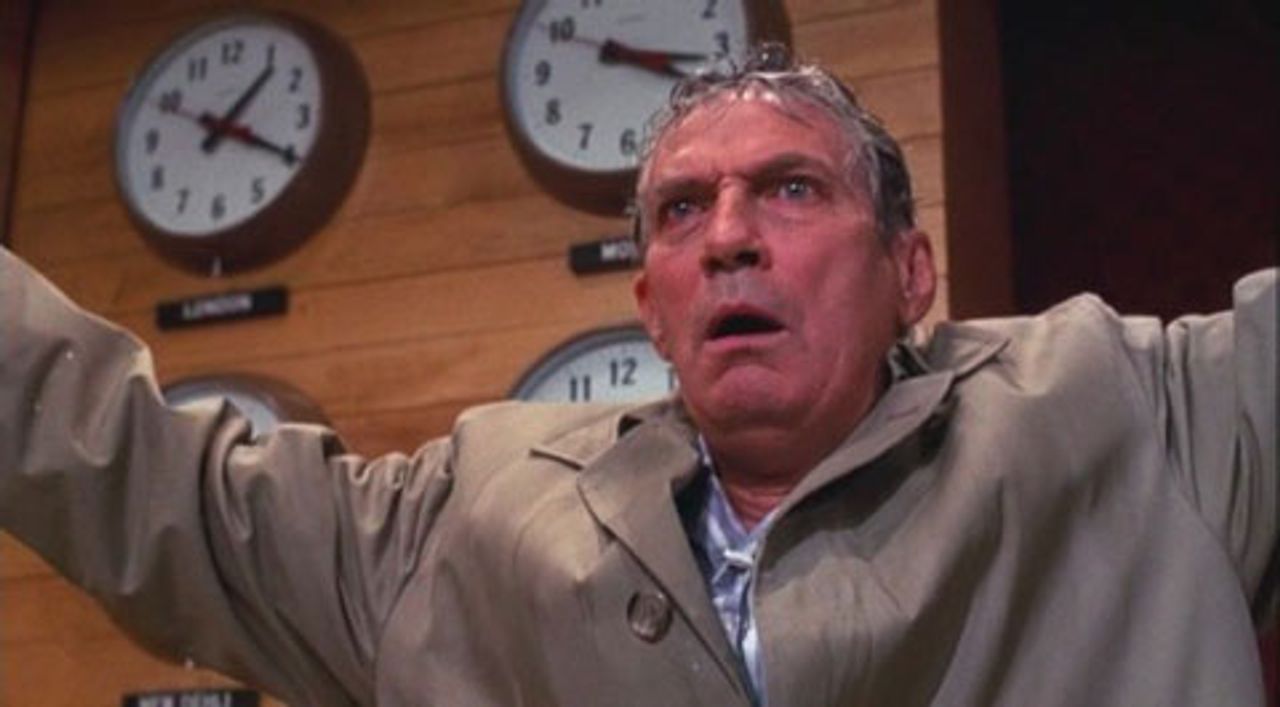American filmmaker Sidney Lumet died April 9 at the age of 86. The veteran film and television director, whose career spanned half a century, is perhaps best known for the films 12 Angry Men (1957), Serpico (1973), Dog Day Afternoon (1975) and Network (1976). Lumet was renowned for his ability to draw rich performances from actors and for his classical technique behind the camera. He attempted, in his best work, to make a serious criticism of life in the US.
 Sidney Lumet
Sidney LumetLumet was born June 25, 1924 in Philadelphia and grew up in New York City, where his family relocated in 1926. His parents, Baruch and Eugenia, were both active in the Yiddish Art Theater and by the age of 4, Lumet was acting onstage alongside his father. The young Lumet achieved some success as a child actor, making his Broadway debut in 1935. He worked steadily in the theater until 1941 when he enlisted in the Army Signal Corps, serving as a radar technician during the Second World War.
After the war, Lumet returned to the theater, where he began directing off-Broadway productions. By 1949, he had secured a job as a staff director with the CBS television network. He worked on hundreds of episodes of the drama “Danger,” which was known as a haven for blacklisted Hollywood writers and directors (including Walter Bernstein and Abraham Polonsky), and “You Are There” (with Walter Cronkite), which featured reenactments of historic events.
The start of Lumet’s directing career coincided dispiritingly with the anticommunist witchhunts of the entertainment industry spearheaded by the House Un-American Activities Committee. While working on “Danger” in 1950, Lumet was nearly blacklisted after his name appeared in the pages of the anticommunist newsletter Counterattack. Lumet had been identified as a Communist by Harvey Matusow, a paid FBI informant, who ratted on hundreds of people during the witchhunts and would later confess to having lied his head off.
The young director was called in one day to meet the toothpaste company sponsor of “Danger,” Mel Block, Hearst newspaper columnist Victor Reisel and Matusow, and was reportedly shown a photo of someone alleged to be himself at a Communist Party meeting. When it became clear Lumet was not actually the man in the photograph, Matusow admitted he had the wrong man and Lumet was allowed to continue working. The incident provides some flavor of the foul conditions under which film and television artists were obliged to operate. In any event, whatever his organizational history, or lack thereof, Lumet’s sympathy with left-wing ideas and causes was well known.
 12 Angry Men
12 Angry MenAfter a lengthy stint as a director of television, Lumet’s debut as a film director came in 1957, with 12 Angry Men. The film follows the tense deliberations of a big city jury in a death penalty case. In a preliminary vote, eleven jurors favor a guilty verdict. One, played by Henry Fonda, holds out and attempts to convince the others the defendant may be innocent. As the men reconsider the facts of the case, they reveal and are challenged, one by one, to overcome certain prejudices.
12 Angry Men reveals both the strengths and weaknesses that would prevail in Lumet’s work. Outrage over social injustice and a real feeling of protest are present in this and many of the director’s other films. However, too many of Lumet’s works suffer from a variety of strained liberalism. As often as not, these were films which tried to convince their audience of certain truths or the correctness of certain beliefs through argument and impassioned monologues, rather than films that revealed or made alive certain features of social life through indelible images or dramatization. One encounters intelligence and seriousness in Lumet, but not great passion or artistic inspiration. Of course, the generally unfavorable intellectual climate has to figure in to any criticism of his efforts.
Lumet’s films treat large and often quite abstract ideas and themes: “Justice,” “decency,” “the fight against corruption,” etc. A more thorough and concrete, historically grounded grasp of social life was generally absent from the director’s work. As a result, his films had a tendency to feature heavy-handed, overwrought dramatic moments. There are too many overheated exchanges, such as one sees in 12 Angry Men, between those who stand up for justice and those who do not. Henry Fonda, as 12 Angry Men’s juror number 8, was all good and Lee J. Cobb’s juror number 3, all bad, and the two simply butted heads until one or the other’s persuasiveness won out. The remaining jurors stood in for the audience, being swayed at different points by this or that argument. Again, one is perhaps convinced, but not moved.
12 Angry Men was followed by a series of films, many of them adaptations of stage plays, which earned Lumet a reputation as a serious filmmaker. There was The Fugitive Kind (1959), based on Tennessee Williams, starring Marlon Brando and Anna Magnani; Long Day’s Journey Into Night (1962), an adaptation of Eugene O’Neill’s famed drama, with Katharine Hepburn and Jason Robards; and The Pawnbroker (1964), about a Holocaust victim who runs a pawnshop in Harlem, starring Rod Steiger. Lumet also made a version of Arthur Miller’s A View from the Bridge (1962). Many of these films were well received at the time and continue for the most part to be highly regarded, but none of them is entirely satisfying. Some are even hard to take.
Lumet was certainly hard-working, averaging more than a film a year from 1961 through 1990, thirty-two features in all. Fail-Safe (1964), for example, looked at the danger of nuclear devastation; The Hill (1965) at British military brutality; The Group (1966), based on the Mary McCarthy novel, followed a number of Vassar College graduates during the Depression years; The Deadly Affair, based on John le Carré’s first novel, examined Cold War intrigue; Bye Bye Braverman (1968), a blackly comic film, with its hints of James Joyce’s Ulysses, represented something of a pleasant change—the performances of George Segal, Jack Warden and Joseph Wiseman in particular are outstanding. A worthy collection of films, all in all, but hardly one of them made a deeply enduring impact.
It was not until the 1970s, and the emergence of a more radicalized social atmosphere in which the director clearly felt more at home and at ease, that Lumet would do his best work.
Serpico (1973) was based on the true story of Frank Serpico (played here by Al Pacino), a New York City police officer whose exposure of widespread police corruption throughout the 1960s was partly responsible for the formation of the Knapp Commission and its investigations of 1970-72. The film, particularly in its second half, presents a damning portrait of pervasive criminality in the police force. While it tends to remain on the surface of events rather than exploring more fully the social questions which drive them, the work nevertheless makes a strong impact.
(Police and political corruption obviously concerned and fascinated Lumet. He turned to it also in Prince of the City[1981], with Treat Williams in one of his best roles, in Power [1986], with Richard Gere, in Q & A [1990], with Nick Nolte, and Night Falls on Manhattan [1997], with Andy Garcia.)
In Dog Day Afternoon (1975), Lumet gave us what is likely his best, most fully realized film. Based again on actual events, the film tells the story of Sonny Wortzick (Al Pacino), a Vietnam veteran burdened by financial difficulties who robs a bank in Brooklyn to pay for his lover’s sex-change operation. (A 2005 documentary, Based on a True Story, by a Dutch filmmaker, treats the real figure in the case.) From the moment it begins, the robbery goes horribly wrong. Police and TV news cameras quickly surround the building. The event quickly becomes a media frenzy and “errors in judgement” by the cops escalate the situation. Before long an array of snipers, police vehicles, and helicopters are lined up against Sonny.
The film captures some of the explosive social tensions of the time, and in particular, the popular hatred of the New York police. The issuing of the Knapp Commission report and the Attica state prison riot of 1971, which was drowned in blood by state police on the orders of Governor Nelson Rockefeller, were still fresh in the collective memory when the film was shot.
 Dog Day Afternoon
Dog Day AfternoonAl Pacino shouting “Attica! Attica!” as he parades in front of the bank in Dog Day Afternoon remains a remarkable moment. As he shouts to supporters gathered on the street, the police suddenly fear they may have lost control of a crowd that has grown sympathetic toward the robber and instinctively hates the organized state violence directed towards him. “He wants to kill me so bad he can taste it!” shouts Pacino as one officer approaches him with his gun drawn.
Network (1976), from a script by Paddy Chayefsky, was a scathing satire of television news and the corporate powers in charge of the major TV networks. Howard Beale (Peter Finch), an established network news anchor about to be fired from his job because of low ratings, threatens to kill himself live on air. He begins to deliver rants against the “bullshit” of official life and begins to attract an audience for himself.
 Network
NetworkRather than get the deeply disturbed man the help he needs, network executives decide to give him his own show, turning him into a populist demagogue. They cynically exploit the mass social anger Beale has tapped into, turning his catch phrase “I’m as mad as hell and I’m not going to take this anymore!” into big bucks.
To suggest the film is heavy-handed would be an understatement, but if one can get past that element, it has a lot to offer. Lumet always insisted, only half jokingly, that the film was not satire so much as it was straight reportage. If that wasn’t entirely true then, it certainly seems so now. Beale looks tame alongside some of the current demagogues populating the cable news channels.
In the early 1980s, Lumet directed two of his most serious and sensitive films. The Verdict (1982) was a courtroom drama about a self-absorbed lawyer (Paul Newman in one of his strongest performances) who takes on a medical malpractice case only for the money he will receive from the out-of-court settlement. Events in the case, however, including evidence of a cover-up by doctors at the Catholic hospital where his client was treated and the dirty tricks of a team of lawyers hired by the archdiocese in charge of the hospital, deeply affect him.
Newman’s character chooses to take the case to trial and expose the criminal negligence that left his client in a coma rather than accept a settlement which would have left the truth concealed. “If I take the money, I’m lost,” he says when offered a deal.
Daniel (1983), based on E.L. Doctorow’s novel The Book of Daniel, was an attempt to deal with the case of Julius and Ethel Rosenberg and the devastating consequences their execution at the height of the anticommunist frenzy in 1953 had on the lives of their children. In the 1960s, Daniel Isaacson (Timothy Hutton) begins to reconsider the lives of his parents, two young Communist Party members framed-up and executed as Soviet spies, after his sister, haunted by their death, suffers a mental breakdown. Daniel struggles to clear his parents’ names in the 1960s, while flashbacks tell the story of their lives in the 1930s and 1940s.
The film is intelligently made and well performed by all of the actors involved. Lumet always considered the project one of his most important and his command of his craft was rarely more sure. His revulsion over the execution of the couple at the center of the story is genuinely felt.
Maintaining his interest in significant social episodes and trends, Lumet directed Running on Empty in 1988, about a couple (Judd Hirsch and Christine Lahti) who participated in a Weatherman-style anti-war bombing in the early 1970s and have been on the run ever since. A decade and a half later, their teenage son, well played by River Phoenix, begins to have a life independent of his parents and this produces a crisis. Again, real intelligence and sensitivity are at work.
Lumet continued directing up until 2007, when his final film, Before The Devil Knows You’re Dead, was released. As noted, he was a prolific director, with more than 70 films and television shows to his credit. Although relatively few of the works were entirely successful or satisfying, itself a reflection in part of some of the cultural problems of the postwar decades in the US, Lumet will be remembered as a figure of genuine artistic integrity and honesty.
